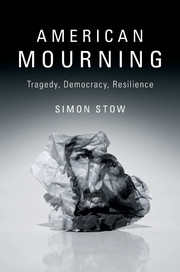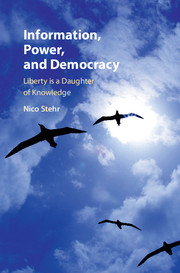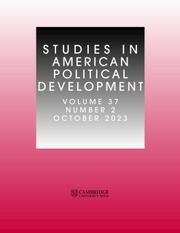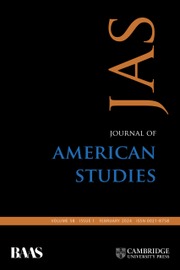American Mourning
How does the way in which a democratic polity mourn its losses shape its political outcomes? How might it shape those outcomes? American Mourning: Tragedy, Democracy, Resilience answers these questions with a critical study of American public mourning. Employing mourning as a lens through which to view the shortcomings of American democracy, it offers an argument for a tragic, complex, and critical mode of mourning that it contrasts with the nationalist, romantic, and nostalgic responses to loss that currently dominate and damage the polity. Offering new readings of key texts in Ancient political thought and American political history, it engages debates central to contemporary democratic theory concerned with agonism, acknowledgment, hope, humanism, patriotism, and political resilience. The book outlines new ways of thinking about and responding to terrorism, racial conflict, and the problems of democratic military return.
- In opposition to recent work on mourning, it rejects the psychoanalytic in favor of Greek political thought, offering a more accessible and revealing analysis that does not require knowledge of Freudian and post-Freudian thought
- Offers new insights into, and productive suggestions for, practical and theoretical questions of public mourning, and practical political engagement in the wake of political losses
- Articulates a positive role for public mourning as a resource for democratic critique, construction, and resilience
Reviews & endorsements
'Advance praise: 'The dead are alive in the American polity'. With this riveting sentence, Simon Stow commences a brilliant and engaging book on the relationships among death, democracy, and public mourning in the United States. Stow not only deploys public mourning to delineate the problematic aspects of American democracy; he also uses it as a prescriptive device to reanimate it. American Mourning is a profound contribution to democratic theory and practice that speaks sagely to these times.' Steven Johnston, Neal A. Maxwell Chair in Political Thought, Public Policy, and Public Service and Professor, Department of Political Science, University of Utah
Advance praise: 'Everything dies, that’s a fact; responding to death, we respond to life. Simon Stow’s brilliant American Mourning - an exciting contribution to democratic theory, cultural studies, literary studies, and even musicology - locates this fact in our lives and our politics. Detailing a range of mourning practices, Stow seriously but playfully invites the reader to consider mourning as a life-nurturing mode of critical engagement and reflection. Mourning, more importantly, provides a source for democratic invention, protection, and resurrection. Stow’s courageous, but ultimately astute, wager that lost democratic possibilities can some day come back as new resources for valuing life, returns rich rewards.' Char R. Miller, Schar School of Policy and Government, George Mason University
Advance praise: 'The dead are politically active, so Stow argues in this beautifully written book. Stories of loss and death shape living politics, and can even revitalize moribund democratic practices. Offering fresh interpretations of key political moments of mourning, from ancient Greece to the civil rights movement to post-9/11 politics, Stow defines mourning as a democratic practice that can generate collective commitment and inspire public responsibility. Rarely has a book on mourning and tragedy been so viscerally energizing. It should be required reading for anyone invested in democratic political thought today.' Elisabeth Anker, George Washington University and author of Orgies of Feeling: Melodrama and the Politics of Freedom
Product details
June 2017Adobe eBook Reader
9781108216531
0 pages
This ISBN is for an eBook version which is distributed on our behalf by a third party.
Table of Contents
- 1. Pericles at Gettysburg and Ground Zero: tragedy, patriotism, and public mourning
- 2. A homegoing for Mrs King: on the democratic value of African American responses to loss
- 3. Mourning bin Laden: Aeschylus, victory, and the democratic necessity of political humanism
- 4. Homecoming and reconstitution: nostalgia, mourning, and military return
- 5. Mourning as democratic resilience: going on together in the face of loss.







